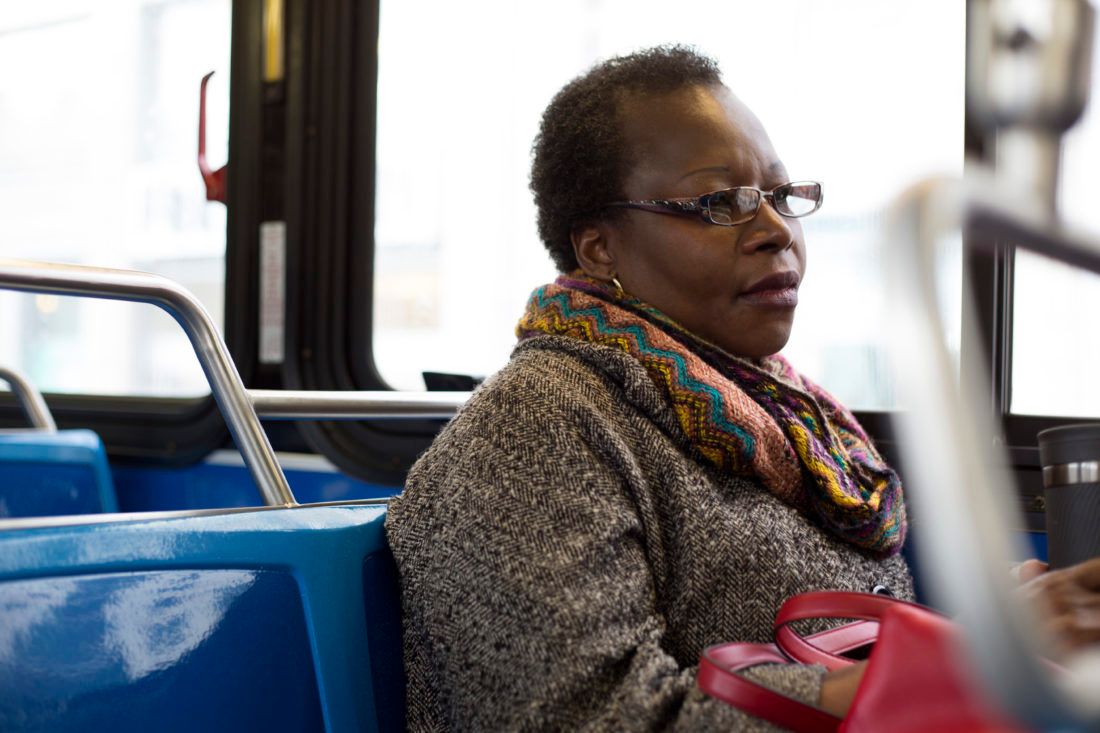OPINION: Essential Workers Supported Us This Year, Now We Must Support Them


By Maya Wiley, Candidate for Mayor & Pauline James, RN Brookdale Hospital
March 1, 2020 marked the first diagnosed case of COVID-19 in New York City. A year later we have over 29,000 COVID-19 deaths in this city, over 47,000 deaths in New York State, and we passed the devastating mark of 500,000 Americans dead from the virus. Comprehending our City’s total loss is daunting – thousands of families missing loved ones, thousands of dreams shattered, jobs and opportunities lost. We must not be numb in the face of these numbers. Behind every one is a mother, father, daughter, son, brother, sister, grandparent, neighbor, or a friendly face you saw on the street.
Essential workers showed up every day at great personal sacrifice and faced the crisis head-on to keep our City going. They were there for us as the federal government and President Trump abandoned New York and tried to sweep COVID-19 under the rug. They were there for us even when they didn’t have the necessary PPE to reduce their own risk. They have taken a toll emotionally and physically that many of those who cheered them on will never fully comprehend. For this, we are indebted to them.
New Yorkers continue to die every day from this virus and we must stay committed to protecting one another. But, as vaccination rates increase and new cases decline we are just now beginning to feel that brighter days are within reach. One day, hopefully soon, COVID-19 will be behind us – restaurants will be full, Broadway will be open, and we will be able to gather with friends and family and hug them on the way in the door.
It will be tempting to bury the memory of this year away and move on with our lives, but we cannot let that happen. We have an obligation to care for those who cared for us and kept this city running during our darkest days. We all remember the collective ringing of pots and pans at 7:00 p.m. for essential workers last spring. That spirit, that sense of purpose needs to be embodied in, and acted upon by our leadership.
Audia from Brooklyn is an 1199SEIU care worker. She travels two hours each way, to and from work, to get to her client in a wheelchair. She has to pay for her own PPE and stands in a food pantry line twice a week. Audia is an essential worker who works hard and cares for her family. This is who we cheered for every night. If we settle for recovering back to the way New York was before COVID-19, we will be failing the same people, like Audia, we are praising as heroes now. In this moment we have to come back a more prosperous, decent, and equitable city.
It begins with ensuring that the essential workers who have kept us going this year and the disproportionately Black, Latino, and Asian New Yorkers in the communities who have suffered the most from this crisis are prioritized for vaccine access. The racial disparity in vaccine distribution is due to lack of access and not a lack of desire. It is unconscionable that given what we know about who essential workers are and what communities have borne the worst of this crisis, that protecting our most vulnerable people has not been the guiding principle of vaccination efforts.
Beyond vaccinations, as we recover, the people who have cared for us and cared for our communities need to get what they have earned. The care economy is the fastest growing industry for workers, particularly for women of color who made up 88% of the New York City’s paid care workforce, and 77% of its unpaid kinship caregivers in 2017. But, New York’s care economy is facing simultaneous challenges. Sectors that employ a majority female, majority BIPOC, heavily immigrant workforce have been decimated. There is a rising crisis of unaffordable childcare and an exodus of women of color from the workforce, with the potential for a generational set-back in progress won by women of color toward equal pay and representation. We have a rise in uncompensated and often unsafe labor conditions for those who remain employed, and a growing but inequitable home care industry. Investment in the care economy is both necessary for New York to come back stronger and necessary if we truly value fairness and equity.
Care work is work. We have the ability to treat it as such, but it requires us to center economic development on the workforce that keeps our city running. We can provide a yearly income to New York City’s most in-need caregivers to compensate them for their work. We can create community centers to add necessary services including licensed childcare, eldercare by licensed home health aides, benefits counseling through partnerships with community based organizations, food pantries, adult education classes, and other critical services for the communities that need them. We can increase protections for care workers because care work remains undervalued and dangerous. We just need leadership that is unafraid to innovate and that is committed to prioritizing essential workers.
As we begin year two of COVID-19 in New York City, it is difficult to come to terms with the enormity of what we have lost. But, New Yorkers are resilient and when we get through this crisis we must remember who it was that cared for us during our most difficult times and ensure that we are caring for them as we rebuild and reimagine our City.




